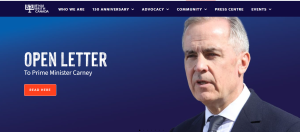 TORONTO — It was May of 1991 and Micha Feldman was exhausted. He hadn’t slept for two nights and hadn’t eaten for two days. His blue shirt had turned brown with dust, and he had lost his voice. But he couldn’t go home just yet.
TORONTO — It was May of 1991 and Micha Feldman was exhausted. He hadn’t slept for two nights and hadn’t eaten for two days. His blue shirt had turned brown with dust, and he had lost his voice. But he couldn’t go home just yet.
Micha Feldman, who was involved with Operation Soloman, spoke at The House on Nov. 18.
Micha Feldman, centre, who was involved with Operation Soloman,
poses with his audience at The House, where he spoke on Nov. 18.
TORONTO —
It was May of 1991 and Micha Feldman was exhausted. He hadn’t slept for
two nights and hadn’t eaten for two days. His blue shirt had turned
brown with dust, and he had lost his voice. But he couldn’t go home
just yet.
Feldman, then the Israeli consul to Ethiopia, was in the middle of Operation Solomon, which was aimed at bringing Ethiopian Jews to Israel. After leading more than 14,000 Ethiopians on to 34 Israeli planes, Feldman arrived in Israel, tired, hungry, and determined to see the last plane land.
“Many [Ethiopians on the plane] recognized me. The moment they saw me, their eyes glittered. They called me Abba [Father] Micha. This is what I won,” he said.
Feldman, now a volunteer at the Israel Crisis Management Centre, which helps newcomers and victims of terror, spoke at The House, a Jewish centre for youth, on Nov. 18.
Feldman told an audience of around 30 people about his first trip to Ethiopia in the 1980s. While walking to a small village, Feldman was spotted by a group of Ethiopian school children.
“Here, in the midst of Africa, a surprise happens. These children… open their mouths and spoke Hebrew,” he said.
While planning for Operation Solomon, Feldman, who was in charge of organizing civilians, was faced with problem after problem.
“If you want to get the whole population of Montreal to Toronto, you have buses… private cars,” he said. But in Ethiopia, there was only one bus company. When Feldman was able to secure about 20 buses from the company, he then had to organize thousands of people, who were placed in groups of 190 in the airport.
It was only until after the operation that Feldman understood its importance. While visiting Munich, Feldman and several colleagues went to the Dachau concentration camp.
“There in Dachau it struck us – we understood the essence of the experience of Israel,” he said.
During his talk, Feldman discussed life for Ethiopian Jews after Operation Solomon.
“Their absorption is not easy. They are black in a white society. Most of the parents are illiterate in their own language, so we have to assist them in every facet of life,” he said. “We, as Jews, can’t allow ourselves to have a black underclass in Israel.”
Jodi Katzeff, The House’s program director, said Feldman’s lecture was an important history lesson for the audience, which was made up of young people aged about 23 to 30.
“It’s important for us to hear [lectures] like this. It keeps us connected to Israel,” she said. “If you don’t make an effort, you’re never going to know.”
David Goodman, who helped promote the event, agreed.
“[The lecture] was unbelievable,” he said. “He captured the essence of looking after Jews. He’s just so giving to everyone but himself.”
Feldman presented a form of success that goes beyond material wealth Goodman said.
“Here’s a guy… who epitomizes another version of success. The fact that he’s Jewish really reinforces the importance of the Jewish community.”
Melissa Lass, 26, found Feldman’s talk “very inspirational. I liked the personal touch of the stories. There’s a lot that goes into planning and executing such a mission. It really touches so many people,” she said.







